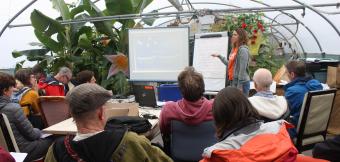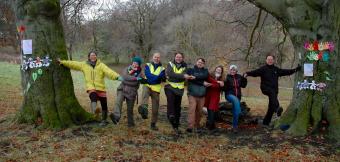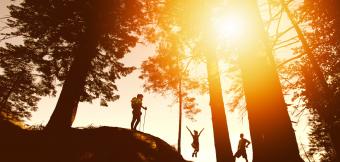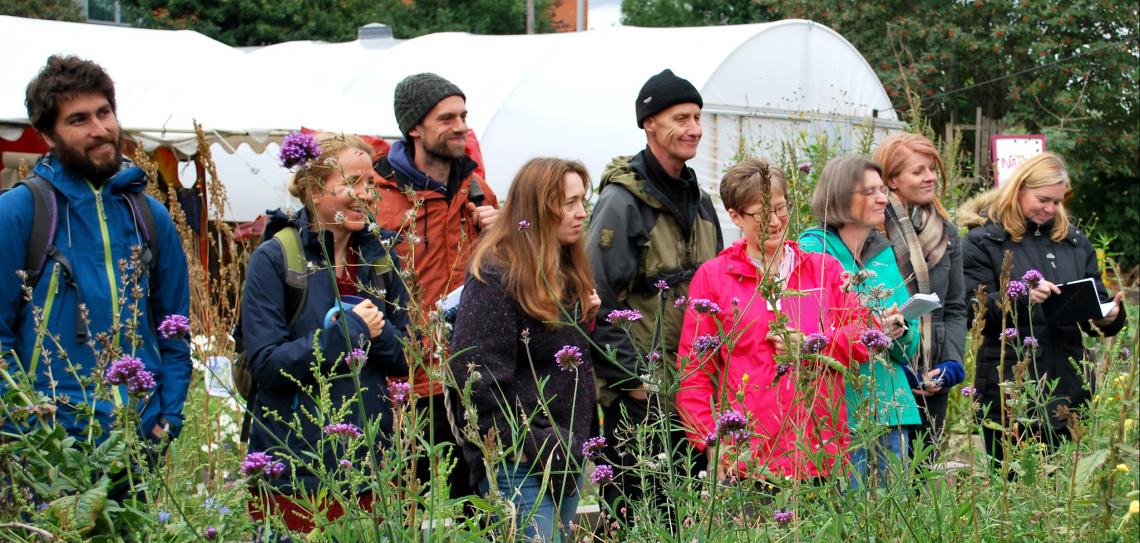
Listen, share and learn
Knowledge is power. Take every opportunity you can to learn from others and share what you know. Attend a class, lead a skill share, watch (or create) a video, read a book, write an article, spend a day with an artisan. Ask for and give advice and share the climate actions you've taken.

Tackling climate change requires all of us to live differently. While great high-tech solutions are emerging all the time, its very unlikely that technology alone can reduce carbon emissions or adapt society to the degree required. In a sense, climate change is a massive exercise in global democracy; can we, seven billion humans, make the individual lifestyle changes and adaptations that collectively save our civilisation? This means we all need to develop our expertise in climate change. That message is at the heart of the 52 Climate Actions Project: 'here is what you need to know and what you can do'.
But each of the 52 actions is only a start; while we've tried to give as much detail as possible, we can't provide the practical guidance to actually install solar panels, start a community group, create a fire break, or any of the other actions we recommend. For that guidance, you need to look to those who've already done it.
In turn, when you've successfully accomplished one of the 52 actions you have become an expert, so share what you've done, how you've done it, and the benefits it has brought. We have have an incredible tool at our fingertips for this kind of shared learning: the internet. We also have older tools that have served humanity for hundreds of years, such as hands on learning, classes, books and conversations.
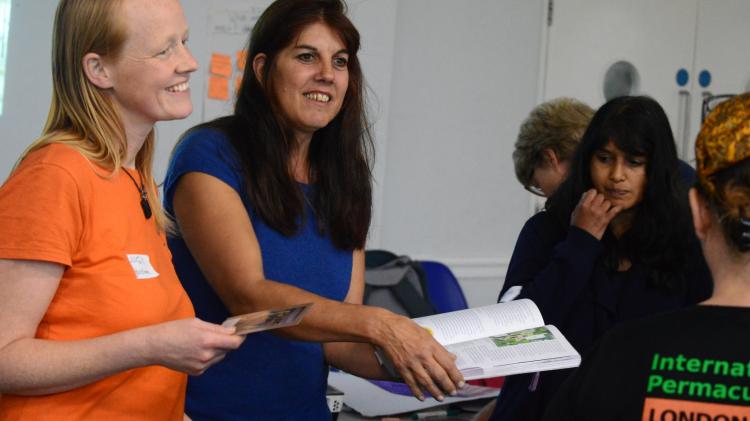
There are many ways to share climate action knowledge and learn from others. Here's a few:
Join a skill share event. Skill shares are practical, hands-on learning sessions about green building, food growing, tree planting, water conservation, composting, energy generation, or any aspect of sustainable living. Those taking part learn new skills and feel inspired to try them at home and in their community. Skill share events build relationships, foster new sustainability skills, inspire change and create all sorts of unexpected benefits. To run a skill share event all you need is a completed climate action at your home which you can demonstrate to other people who are interested in emulating what you have done.
Make or watch a video. Video sharing sites like Youtube have made it possible to learn skills in almost any area from your own home. The range and variety of videos are immense. Quality is very variable, so choose carefully.There are hundreds of great examples, like Little Mountain Ranch and This Old House's Youtube channel.
If you feel that you can do a better job of demonstrating something than the existing videos, or if you have a practical skill that isn't available, have a go at making your own film.
Spend a day with an artisan. By 'artisan', we mean anyone who has a practical skill, from growing lettuce to building a straw bale house. You can offer to help them out as a 'labourer' (one of the best ways to learn), ask if you can do a task together, pay to attend a formal demonstration session, volunteer on a community project they are running, or arrange a skill swap where they teach you and you then teach them. If you have an artisan skill, be ready to share it when people ask you; work out in advance if you are going to charge and if so, how much.
Read a book or article. Yes, it’s old fashioned, but it’s also a great way to learn new stuff. Reader's Digest, for example, has produced hundreds of excellent teach yourself/ DIY titles, while there are many specialist magazines full of practical skills. Choose carefully and take recommendations whenever possible. Clear illustrations can be a key feature. Buying new can be expensive, but borrowing from friends or libraries is cheap. If you’ve completed an action, you could write an article for a local or national magazine, or even a book.
Get informal advice. Observe the skills and experience of your friends, family and neighbours, and when you want to learn how to repair your bike or to make jam, ask them. If your friends don't have the answer, try the internet; there are likely to be many people who have solved a problem just like yours. However, you need to be careful about the quality of informal advice; some of what you are told will be plain wrong. Be generous in giving informal advice; do so whenever you're asked, but try to avoid being the person giving the wrong solution!
Attend a class. Formal classes are still one of the best ways to learn. You can attend a face to face class, or go online. Classes come in a huge variety of subjects, depth, costs and quality, so choose carefully. One of the best ways to master something is to teach it, so if you have a skill consider how you can teach others; you may even get paid! For tips on leading climate conversation sessions with small groups, see Action 25: 'Start a conversation'.
Know your limits. One word of caution: a lot of tasks, from gardening to electrical wiring, can have serious hazards for you and your property. Don't overstrain yourself physically, and don't do any work you aren't confident about or need certified professional training for (such as certain electrical work). The consequences could be fatal, literally. If you're struggling with a task, bring in an expert to help.
Picture credits: 1) Nicola Siddons - Flickr.com/permaculture-association 2) Permaculture Association https://www.flickr.com/photos/permaculture-association/43141693470/in/d… 3) https://www.flickr.com/photos/permaculture-association/44911756991/
Take a class relevant to climate action
Learn the practical skills to deliver one climate action
Organise a climate action skill sharing event
Write and publish an article about an action you’ve taken

